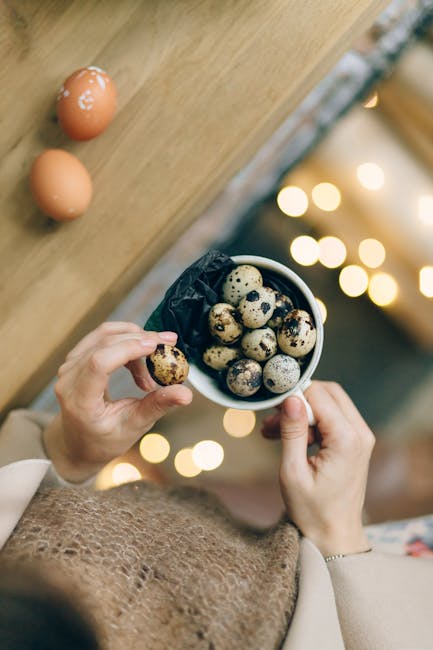The Complete Guide to Holiday and Seasonal Cooking with Organic Cookware
When it comes to holiday and seasonal cooking, using the right cookware can make all the difference. Organic cookware not only ensures healthier meals but also adds a touch of sustainability to your kitchen. In this comprehensive guide, we will explore the benefits of organic cookware and provide tips and recipes for creating delicious meals during the holidays and throughout the changing seasons.
Benefits of Organic Cookware
Organic cookware is made from natural materials such as clay, cast iron, stainless steel, and glass. These materials are free from harmful chemicals and toxins commonly found in non-stick coatings and plastic cookware. Here are some of the benefits of using organic cookware:
- Non-toxic: Organic cookware does not leach harmful chemicals into your food, ensuring that your meals are safe and healthy.
- Durable: Many types of organic cookware, such as cast iron and stainless steel, are known for their durability and longevity.
- Even heat distribution: Organic materials conduct heat evenly, allowing for better cooking results.
- Environmentally friendly: By choosing organic cookware, you are reducing your environmental impact and supporting sustainable practices.
Holiday Cooking with Organic Cookware
During the holiday season, the kitchen is the heart of the home, bustling with activity as delicious meals are prepared for family and friends. Here are some tips for holiday cooking with organic cookware:
1. Roasting with Cast Iron
Cast iron cookware is perfect for roasting holiday meats such as turkey, ham, and prime rib. The even heat distribution of cast iron ensures that your meat cooks evenly and retains its juices for a succulent result.
2. Baking with Ceramic Bakeware
Ceramic bakeware is ideal for baking holiday treats like cookies, pies, and casseroles. The heat retention of ceramic ensures that your baked goods are cooked through evenly and have a golden crust.
3. Simmering with Stainless Steel
Stainless steel pots and pans are great for simmering holiday soups, stews, and sauces. The non-reactive nature of stainless steel ensures that your ingredients retain their flavors without any metallic taste.
4. Sautéing with Non-toxic Cookware
When sautéing vegetables or searing meats for holiday dishes, opt for non-toxic cookware such as ceramic or cast iron skillets. These materials do not release harmful chemicals when heated at high temperatures.

Seasonal Cooking with Organic Cookware
As the seasons change, so do the ingredients that grace our tables. Cooking with seasonal produce not only results in fresher and more flavorful dishes but also supports local farmers and reduces environmental impact. Here are some seasonal cooking tips with organic cookware:
1. Spring
Spring is the time for fresh greens, tender asparagus, and juicy strawberries. Use stainless steel pans to quickly sauté spring vegetables and ceramic baking dishes for fruit pies and tarts.
2. Summer
In the summer, indulge in ripe tomatoes, sweet corn, and colorful bell peppers. Grill summer vegetables on cast iron grates and use glass storage containers to keep your seasonal salads fresh.
3. Fall
As the air turns crisp, enjoy hearty root vegetables, fragrant apples, and warming spices. Roast fall vegetables in ceramic dishes and simmer comforting soups in stainless steel pots.
4. Winter
Winter calls for cozy meals like stews, roasts, and baked goods. Use cast iron Dutch ovens for slow-cooked winter dishes and glass baking dishes for comforting casseroles.
Recipes for Holiday and Seasonal Cooking
Enhance your holiday and seasonal cooking with these delicious recipes using organic cookware:

1. Holiday Roast Turkey (Using Cast Iron Roasting Pan)
Ingredients:
- 12-pound whole turkey
- 1/2 cup butter, melted
- Salt and pepper to taste
- 1 onion, quartered
- 2 stalks celery, chopped
Directions:
- Preheat your oven to 325°F.
- Brush the turkey with melted butter and season with salt and pepper.
- Place the onion and celery inside the turkey cavity.
- Roast the turkey in a preheated cast iron roasting pan for 3 to 4 hours, or until the internal temperature reaches 165°F.
- Let the turkey rest before carving and serving.
2. Summer Grilled Vegetable Skewers (Using Stainless Steel Skewers)
Ingredients:
- Zucchini, sliced
- Cherry tomatoes
- Bell peppers, diced
- Red onion, cut into chunks
- Mushrooms
- Marinade of your choice
Directions:
- Preheat your grill to medium-high heat.
- Thread the vegetables onto stainless steel skewers, alternating the types of vegetables.
- Brush the skewers with your favorite marinade.
- Grill the vegetable skewers for 10-15 minutes, turning occasionally, until the vegetables are charred and tender.
- Serve hot off the grill.
3. Winter Butternut Squash Soup (Using Ceramic Soup Pot)
Ingredients:
- 1 butternut squash, peeled and cubed
- 1 onion, chopped
- 2 carrots, sliced
- 4 cups vegetable broth
- 1 tsp cinnamon
- Salt and pepper to taste
Directions:
- In a ceramic soup pot, sauté the onion until translucent.
- Add the butternut squash, carrots, vegetable broth, cinnamon, salt, and pepper.
- Simmer the soup over medium heat for 20-25 minutes, or until the vegetables are tender.
- Blend the soup until smooth using an immersion blender.
- Serve hot with a drizzle of olive oil.
Conclusion
Cooking with organic cookware adds a level of quality and sustainability to your meals, whether you’re preparing a holiday feast or a seasonal dish. By choosing non-toxic and eco-friendly cookware materials, you can enhance the flavors of your ingredients while supporting a healthier lifestyle and a greener environment. Incorporate these tips and recipes into your holiday and seasonal cooking repertoire for a truly organic culinary experience.


